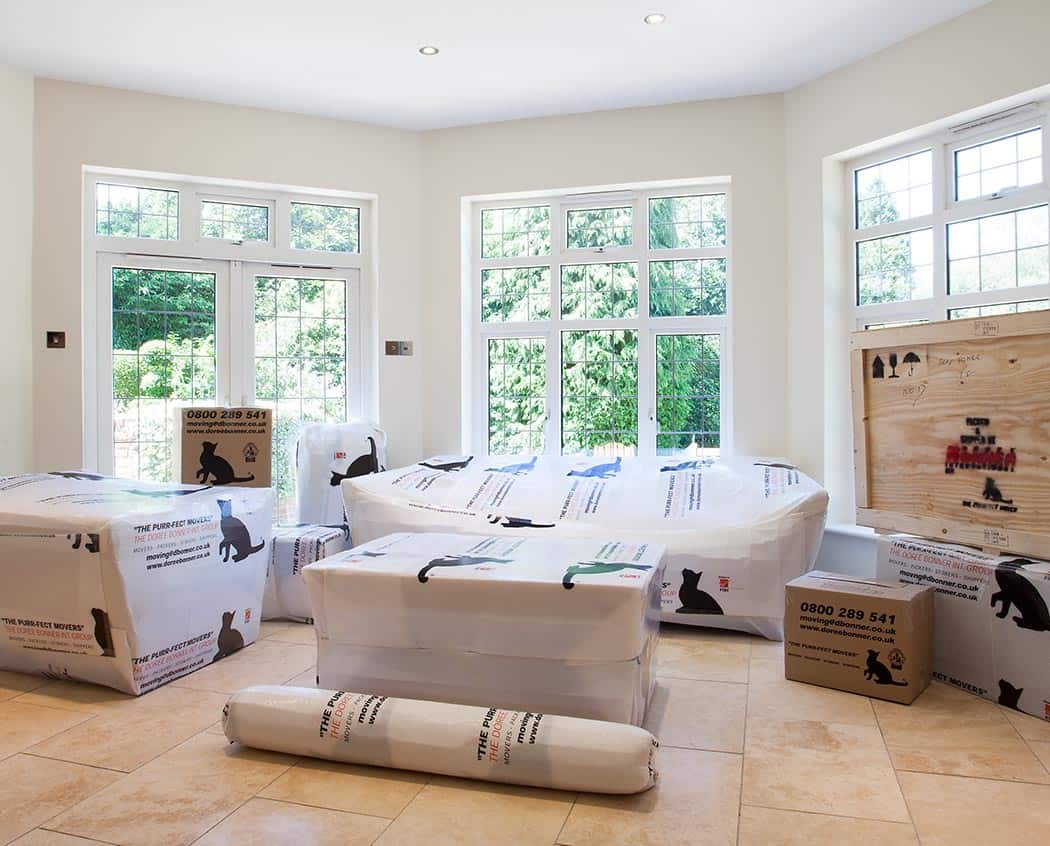When estimating the cost of moving home, there are dozens of things to consider. Getting a quote on a moving van alone can feel like you’re taking a maths exam as you try and estimate the size of everything you’ve ever owned. Getting the estimate right takes a lot of stress out of moving – that’s why we compiled this list of the often-overlooked extras that could end up adding hundreds of pounds to your moving bills.
1. Boxes and Packaging
Most people will remember to buy boxes ahead of the move, but it’s easy to underestimate how many you’ll need. Removalreviews.co.uk estimate a typical move from a 2-3 bedroom home will spend more than £100 buying cardboard boxes and renting plastic tubs.
Don’t forget about the other packing supplies as well! You’ll need a roll of tape for every 7-10 boxes, depending on their size, plus bubble wrap and packing paper. Removal reviews recommend 5 meters of bubble wrap, or 10 meters if you have lots of delicate items.
2. Extra removal services
Make sure you know everything that’s included in your removal contract, and that you’ve mentioned anything extra you’ll need help with on the day. Movers typically won’t expect to help with any packing on the day, and the service will usually add around £250 to the cost of moving home.

Image credit: Doree Bonner https://www.doreebonner.co.uk/storage-and-removals/uk/
Similarly, movers will expect to have all your furniture disassembled and ready to go. Getting help breaking down your flat packs and rebuilding them at the other end can cost around £125.
Mention anything unusual about the property you’re moving to or from when you’re getting your initial quote so you’re not hit with any surprise fees. Depending on the firm, you may be asked to pay extra if there are flights of stairs, delicate items, or if there are any delays.
3. Storage
In an ideal world, you’d move straight from one property to another, but reality can sometimes get in the way. If you need to leave one property before the next is ready, you might need to stay with friends and family or in a hotel. Make sure to plan for where your boxes and furniture will spend the night as well – your movers may have an overnight storage option, but otherwise s 200 sq ft self-storage unit would cost an average of £88 for one week’s use.
4. Professional Cleaning
You may have left your previous property spick and span, but you could be arriving to a property that’s a bit less pristine. Depending on how long the property has been empty – and the previous residents – your new home may be dusty and dirty before you’ve even arrived. Between post-move exhaustion and the fact that your vacuum is still stuck in a box somewhere, many opt for a professional cleaning at the start of the occupancy.
5. Food
It may seem strange, but many moving professionals recommend budgeting a little extra for food into the cost of moving home. However, at the end of your move day and faced with a kitchen packed into boxes, you’ll probably understand why most people opt for a takeaway.

You’ll likely have to include the cost of at least one takeaway meal into the cost of moving home
Budget for a few nights of convenient food, as well as the cost of restocking food you didn’t move with and filling the fridge with perishables. You can help mitigate the expense by packing all of your kitchen essentials in one or two clearly marked boxes and making sure they’re the first unpacked.
6. Getting Online
In 2022 an internet connection can feel as crucial as hot water, so getting this connected is likely to be a priority. It can take as long as a month for a property to be connected to broadband internet in the UK, so we’d recommend placing an order as far before the move as possible. If you’ll still be offline for too long you can opt for a short-term mobile internet package to cover you before the start of your main service.

4G and 5G mobile routers can be used anywhere with a mobile signal with no set-up required. They’re a great option not only for short-term cover but also for homes where broadband infrastructure isn’t available.
7. Letting Agent Fees
If you’re a tenant in the UK, moving used to involve a confusing list of fees from your agent for starting your tenancy. Changing your contract, not changing your contract, your own referencing… the list of fees goes on and on. Since 2019, the ‘Tenant Fees Act’ has meant that the only legal charges your landlord or letting agent can require are a deposit of up to five weeks’ rent, and a fee of up to £50 or costs incurred if you request any changes to the tenancy agreement.
Moving soon? Get a copy of our moving checklist- it’s free!
Read more moving guides:













